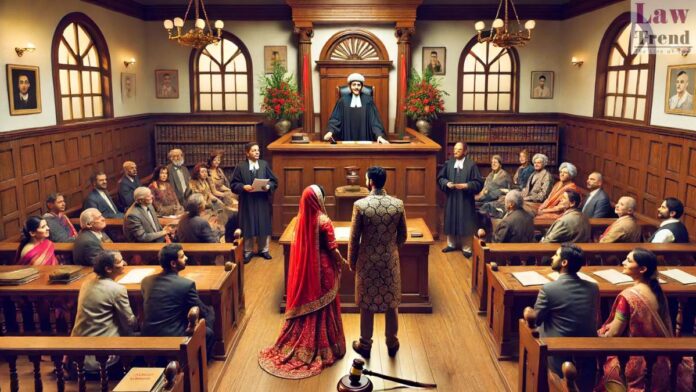The Madhya Pradesh High Court has ruled that under Section 15 of the Hindu Marriage Act, 1955, a second marriage cannot be solemnized while an appeal against a divorce decree remains pending. The judgment, delivered by a division bench of Justice Sanjeev Sachdeva and Justice Devnarayan Mishra, provides clarity on the procedural safeguards intended to
To Read More Please Subscribe to VIP Membership for Unlimited Access to All the Articles, Download Available Copies of Judgments/Order, Acess to Central/State Bare Acts, Advertisement Free Content, Access to More than 4000 Legal Drafts( Readymade Editable Formats of Suits, Petitions, Writs, Legal Notices, Divorce Petitions, 138 Notices, Bail Applications etc.) in Hindi and English.




